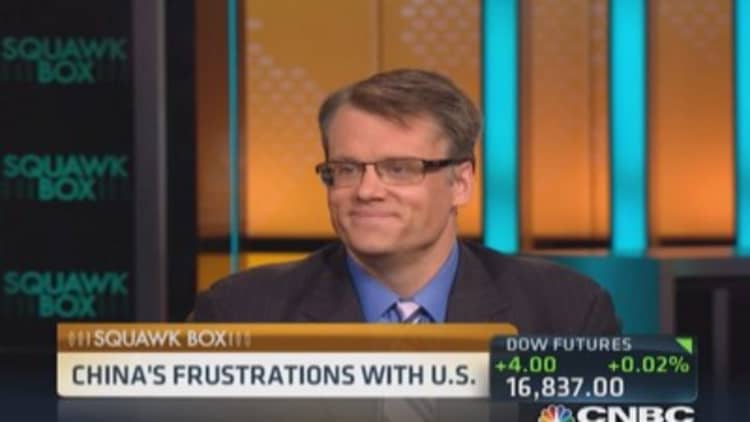The nation's electoral eyes once again turn to Mississippi this week, as the wild GOP Senate runoff between incumbent Thad Cochran and upstart state Sen. Chris McDaniel draws to a close.
The result—McDaniel remains the heavy favorite—is likely to color the rest of the 2014 electoral season as well as the prospect for any significant legislating to get done in Washington the rest of this year.
If Cochran goes down, the narrative that the tea party is rising once again will gather even more pace following House Majority Leader Eric Cantor's stunning primary loss in Virginia. And that will mean serious trouble for, among other things, the reauthorization of the Export-Import Bank—a top priority for big business, but also a top target for conservative populists.
In fact, with incoming House majority leader Kevin McCarthy coming out against the Ex-Im bank over the weekend, reauthorization prospects seem to be dropping fast. A Cochran loss would make it seem even less appealing to many Republicans to back the bank, which provides loans and loan guarantees to aid U.S. exporters.
Most of the big business lobbying groups, from the U.S. Chamber of Commerce to the National Association of Manufacturers, support extending the Ex-Im bank as a key national tool to battle nations like China, which provide much larger subsidies to exporters.
Read More Perry says he 'stepped right in it' with gay remarks
But the populist right—including House Financial Services Chair Jeb Hensarling and the Heritage Foundation—has seized on the bank as an example of "crony capitalism" and made killing it a top priority.
These groups are unmoved by reports suggesting that Ex-Im, lambasted as corporate welfare for giants such as Boeing and Caterpillar, actually provides much of its support to small and midsize business that want to increase exports.
A McDaniel win could also further complicate efforts to pass a transportation bill to keep the Highway Trust Fund solvent—and keep road and bridges projects funded—beyond the end of August.
Sens. Bob Corker, R-Tenn., and Chris Murphy, D-Conn., proposed a phased-in gas tax hike to make up the highway-spending shortfall. Moderate Republicans generally support the increase. But if moderate (and even mostly conservative) Republicans keep losing primaries, will the gas-tax hike be dead in the water?
Read More Fiscal battles loom for new House Republican leaders
There are no other clear alternatives on the table, which means the U.S. could in fact go over the "highway cliff" at the end of the summer, something that could both tank the economy and destabilize the stock market. As with other cliffs, Congress is likely to find a last minute fix before heading out on summer recess, but there is no guarantee.
So is Cochran actually going to lose?
Chances are that he will, given that the runoff electorate on Tuesday is likely to be even smaller and more conservative than the one that already tilted to McDaniel. One recent poll showed McDaniel up by a solid 8 percentage points.
Cochran has been fighting hard to get overwhelmingly Democratic African-American voters to come out and support him, but it's unclear how many will actually do so. And only those who did not vote in the Democratic primary are eligible, so Cochran may get only minimal help. McDaniel supporters have said they will deploy "poll watchers" to ensure that election rules are followed. This move, which harkens back to the state's dark voter suppression past, could chill Cochran's ability to expand the electorate.

Cochran is closing out his effort campaigning with Sen. John McCain, R-Ariz., arguing that his re-election would ensure a much more seasoned voice on foreign policy issues in increasingly uncertain world with Iraq seized by a Sunni uprising, Russia growing more aggressive, and threats multiplying around the globe.
Read MoreMassachusetts mayor: Stop sending my city refugees
The trouble with this approach is that activist Republicans are increasingly isolationist and unsympathetic to the more forceful, interventionist approach favored by McCain.
In the end, it seems likely Cochran will lose, the "return of the tea party" narrative will gain strength and things that the big business wing of the GOP wants—Ex-Im bank reauthorization and passage of a highway bill—will be significantly harder to achieve.
—By Ben White. White is Politico's chief economic correspondent and a CNBC contributor. He also authors the daily tip sheet Politico Morning Money [politico.com/morningmoney]. Follow him on Twitter @morningmoneyben.


